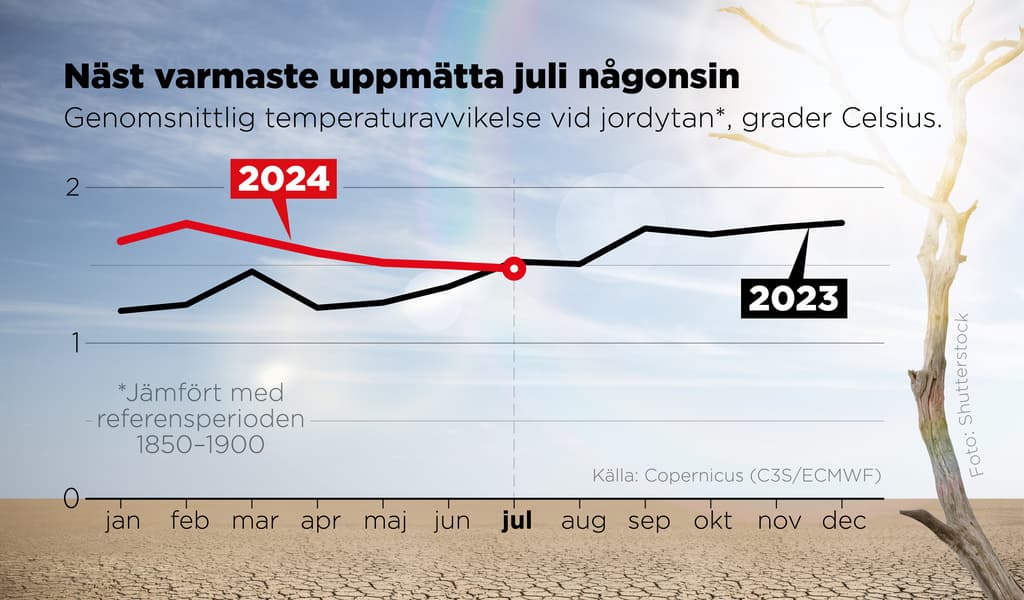Since June 2023, the EU's climate service Copernicus has recorded 13 consecutive record months. July 2024 instead became the second warmest July on record – and the second warmest month overall, according to Copernicus.
The global average temperature was 16.91 degrees, which is 0.04 degrees cooler than July last year – and 0.68 degrees warmer than the average for July 1991–2020.
"On the hair"
This year's July temperature was 1.48 degrees warmer than the average during pre-industrial times (1850–1900), which means that even a 12-month streak of temperatures 1.5 degrees higher than the pre-industrial average is now broken.
"The streak of record months has ended, but it was on the hair. Globally, July 2024 was almost as warm as July 2023, the warmest month ever. July 2024 had the two hottest days ever. The context has not changed, our climate continues to warm up", says Samantha Burgess, deputy chief at Copernicus, in a press release.
Both drier and wetter
Copernicus also notes that this year's July was rainier than usual in large parts of the Nordic region, as well as in the Netherlands, France, and England. The rain led to flooding in parts of the Baltic region. China was also hit by flooding, while the deadly hurricane Beryl caused great destruction in the Caribbean, Mexico, and the USA.
In other parts of the world, the month was unusually dry, particularly in an area stretching from western Russia, over the Balkan countries, and down to Italy. Warnings for drought have been issued in eastern and southern Europe.
Corrected: In an earlier version, the wrong month was stated for when the warming trend began.






